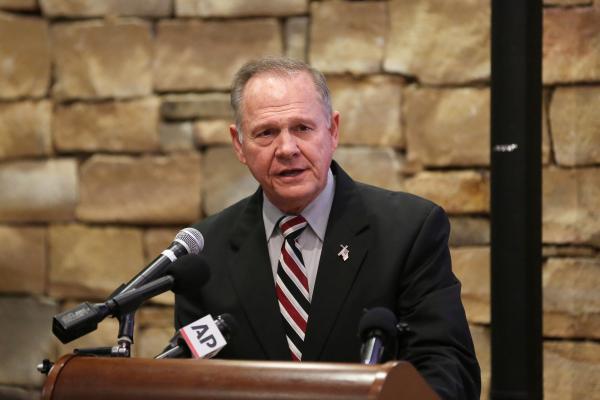Nov 21, 2017
“He is nothing but a godly man trying to make this country come to its senses because of liberals and the other side of the fence trying to protect their evil ways,” an evangelical supporter of Moore recently told a reporter at Jackson, Ala.’s Walker Springs Road Baptist Church.
Read the Full Article

Already a subscriber? Login
